|
Common Color
Terminology |
Picture |
|
Tans
Tans are a
combination of ebony and beige genes that show in different degrees and
variations. All tans, like beiges have pink ears and many will also
develop freckles on their ears, just like beiges.
|
|
Light Tan, Beige Ebony
Carrier or Pastel
With this
coloration, the stomach will be lighter, or even appear white, the fur on
the back will appear in an agouti patterning. The chin may very well
appear to be hetero beige, and you may very well not see the ebony influence
until you breed them and see what their offspring turn out like. |
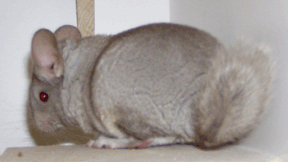 |
|
Medium Tan
With this
coloration, the chin will be more of a solid color all the way around their
body, including their stomach. There is no agouti patterning with this
coloration. It is darker and more of a smooth coloration then the
light tan.
At shows,
this is a beige wrap |
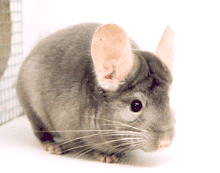
|
|
Dark Tan
With this
coloration, the chin is just a very dark variation of the medium tan.
This shade is very dark and often mistaken for chocolate. The belly
will be the same color as the back. If you blow into their fur, you
will see that the under fur is a lighter color than the outer fur, this
tells you this is a dark tan chin and not a chocolate.
At shows,
this is a dark beige wrap
|
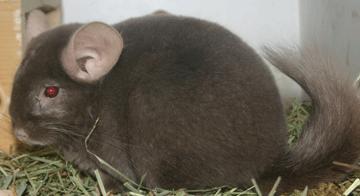 |
|
Chocolate
This is the
darkest shade of tan. The way to tell the difference between a dark
tan and a chocolate is that if you blow into the fur of a chocolate, the fur
will be the same color to the skin.
|
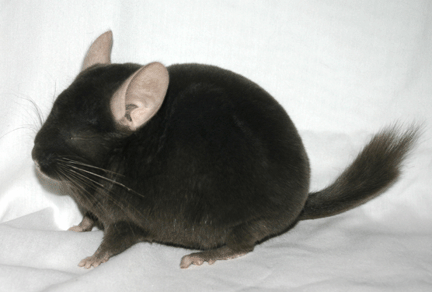 |
|
Homo Tan
This is a
very interesting coloration and can appear very different from chin to chin.
The chin shown here looks like he has white genes, but does not. He
has two tan genes, meaning two beige and two ebony genes. The chin
still has the pink ears of the beige as well as the red eyes. And when
bred can pass on the ebony gene.
|
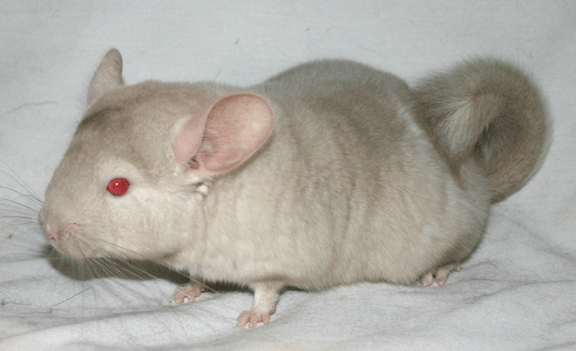 |
|
Ebonies
Ebonies are one of the darkest
color variations, which come in several different shades as well. At
shows, these may be split into three or four categories, it depends on how
many chins are there and the color of those that are there.
|
|
Light Ebony, Ebony Carrier
This color variation can
look VERY similar to a standard. Many times they will appear to have
what is called a "dirty belly", but not always. As with light tans,
sometimes you do not know for sure if this chin is carrying ebony until you
breed it and see what it produces.
|
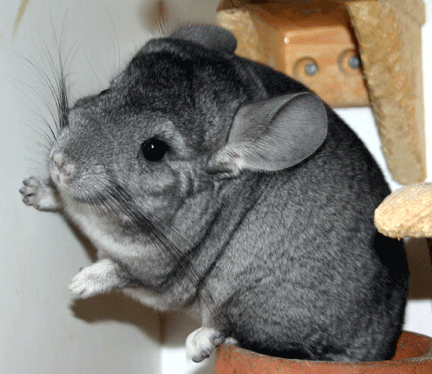 |
|
Medium Ebony
This color variation will
also have a dark belly. Normally it is darker than a standard, still
shows the agouti patterning.
|
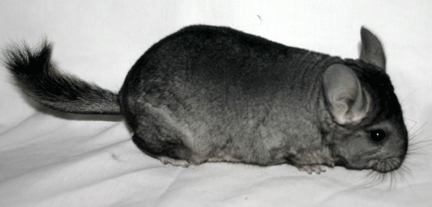 |
|
Dark Ebony
This coloration is often
times mistaken for homo ebony. There may or may not be lighter places
on the chin, many times the chin will appear to be black all over. If
you blow into the fur, you can see lighter coloring underneath.
|
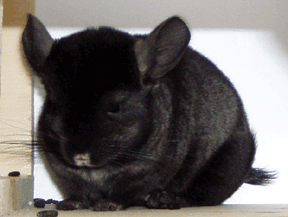 |
|
Homo Ebony, Extra Dark Ebony, Every Hair
Shiny Black
This is the darkest shade
of ebony and the chin has to have two ebony genes to actually be homo ebony.
This chin will have every single hair shiny black.
The term homo ebony really
is not used by ranchers or at shows anymore.
|
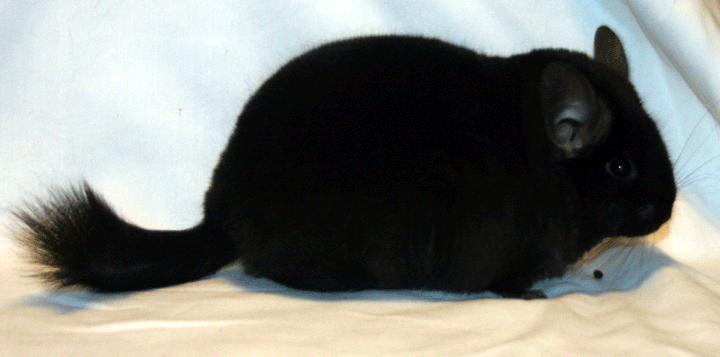 |
|
Whites
Whites are
very interesting. You can get whites by combining many different
colors. For more explanation on whites, look at the link to the MCBA site
above. The definitions for ebony/white and tan/white would be the same
if it were violet/white or any other mix with white.
|
|
Mosaic
Mosaic refers to any chin
that is not pink white. They can have a pattern or not. They all
have grey ears.
|
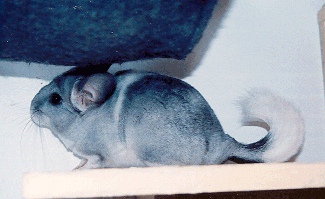 |
|
Pink White
This coloration will be
bright white and have pink ears and red eyes. These chins have a beige
gene in them.
|
We don't have a pink white at this time, so we have no picture to show |
|
Ebony/White, Mosaic Ebony
This coloration carries the
ebony and white gene. They will show ebony on them somewhere on their
body, Especially when they are young and most often at the base of the tail.
Where the ebony shows will be black to the skin.
|
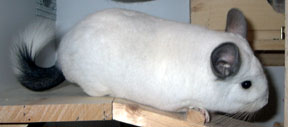 |
|
Tan/White, Tan Ebony
This coloration carries the
ebony, beige and white gene. They will show tan on them somewhere on
their body, This may be hard to tell until the chin has been bred.
|
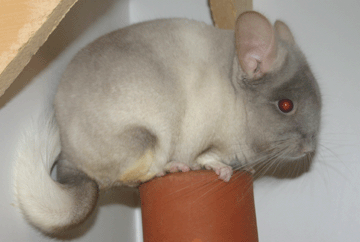 |
